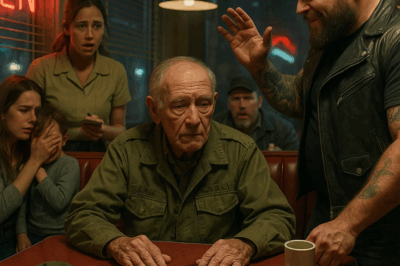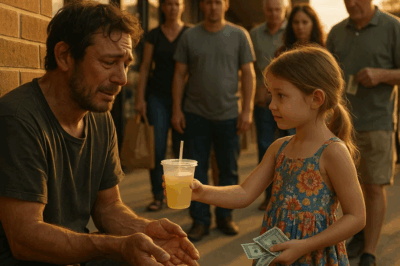“I’m carrying his child”: Erika Lane Frantzve’s Shocking Funeral Confession — and the 14 Words That Left the Nation Breathless
The Silence Before the Storm
It was supposed to be a solemn farewell. A day of mourning, a day of remembrance. On September 14, 2025, thousands gathered inside a grand cathedral in Phoenix, Arizona, to say goodbye to Charlie Kirk — activist, father, husband, and a man whose life was cut short at just 31.
From the moment mourners entered the hall, there was an unshakable heaviness in the air. Cameras flashed as public figures, celebrities, and ordinary supporters filled every corner of the room. The coffin, draped in white lilies, sat at the center beneath a towering cross.
But no one — not the audience, not the media, not even the family — could have predicted what would unfold when Erika Lane Frantzve, Kirk’s widow, finally took the microphone.

A Widow’s Walk
Dressed in black, her face pale from days of tears, Erika walked toward the podium with trembling hands. She clutched the microphone as though it was the only thing keeping her from collapsing. The sound of her heels against the marble floor echoed so loudly, some later swore it was “like a drumbeat of fate.”
The room went still. Conversations died mid-sentence. Even the children present seemed to sense something extraordinary was about to happen.
The Unexpected Confession
Through shaky breaths, Erika began:
“I… I wasn’t sure if I could stand here today. But I have to. Because I need you all to know something.”
The audience leaned in.
Tears streamed down her face as she continued:
“I’m carrying his child.”
Gasps erupted across the hall. People covered their mouths. Some clutched the person next to them. Others simply froze, staring in disbelief.
The widow of Charlie Kirk, standing before thousands, had just revealed she was pregnant — carrying what she called “the last living piece” of her husband.

Cameras Captured Every Tear
News outlets captured the raw moment, broadcasting it live. Clips went viral instantly, drawing millions of views in under an hour. Supporters called it “the most heartbreaking confession America has ever seen.”
But that wasn’t all. What came next would shake the nation to its core.
The 14 Words
Erika paused, her voice trembling as if she were speaking through glass. Then, she spoke the sentence that would be remembered as
the funeral curse.
“Charlie gave his life for truth — now I’ll give mine for his child.”
Fourteen words.
The air cracked like thunder.
No one dared to move. No one dared to breathe. The only sound was the distant hum of the air conditioning and the muffled sobs of strangers.
Every teary eye turned toward her. In that instant, it wasn’t just grief — it was fear, reverence, and awe colliding into one unbearable silence.
Who Broke Down First?
Witnesses say it was Kirk’s own mother who collapsed first, clutching her chest as family members rushed to hold her. Soon after, rows of mourners dissolved into sobs. A prominent senator was seen lowering his head, visibly shaken. Even members of the press — hardened, cynical journalists — put their cameras down to wipe their eyes.
One attendee described it as “the heaviest silence I’ve ever felt in my life. Those 14 words felt like a curse, like they belonged to history.”
Reactions Across the Nation
Within hours, Erika’s words became headlines around the world.
“Pregnant Widow’s 14 Words Stop Funeral in Its Tracks” — New York Post
“The Child That Carries Charlie Kirk’s Legacy” — Daily Mail
“A Nation Stunned Into Silence” — CNN
Social media exploded. Some praised her courage, calling her “a living monument of strength.” Others speculated darkly about the phrase “I’ll give mine,” suggesting it carried an ominous weight.
Behind the Tears: Erika’s Struggle
Friends close to Erika revealed she had not told many people about the pregnancy before the funeral. “She didn’t even want to say it at first,” one confidant shared. “But something inside her knew the world had to hear it — and once she spoke, there was no turning back.”
Insiders also noted that the days leading up to the funeral were filled with private meetings between Erika and Charlie’s closest allies. Some claim she was pressured to remain silent. Others insist she chose to speak against advice, knowing it could change everything.
Theories About the “Funeral Curse”
Almost immediately, speculation erupted.
Was Erika’s line a pledge of sacrifice — hinting she might risk her own life for her child?
Was it a warning to those who opposed Charlie Kirk’s work?
Or was it simply a widow’s poetic vow, spoken through unbearable grief?
Psychologists on morning shows dissected the phrase word by word, suggesting it reflected both trauma and fierce determination. Political commentators debated whether her vow could influence Kirk’s movement or even reshape conservative politics in America.
The Weight of Legacy
Charlie Kirk was not just a political figure. He was a husband, a father of two young children, and now, as the world has learned, the father of one more child yet to be born. Erika’s revelation transformed his funeral from a farewell into a historic turning point.
Supporters gathered outside holding candles and chanting: “For the truth, for the child!”
A Nation Frozen Still
In the days after, recordings of the funeral circulated endlessly online. Millions replayed the moment when Erika said those 14 words, searching for meaning. Each replay seemed heavier than the last.
“The silence after she spoke was louder than anything I’ve ever heard,” one attendee said. “It felt like time stopped.”
Global Attention
Even international leaders weighed in. A European newspaper called it “a Shakespearean moment of tragedy and defiance.” A South American broadcaster described it as “a widow turning grief into a prophecy.”
The Vatican, when asked, responded with a simple statement: “Life carries on in ways we cannot understand. Her words reflect both sorrow and hope.”
The Aftermath
Weeks later, Erika has remained largely out of the public eye. But her words continue to echo. Political organizations are already discussing how to support her and the unborn child. Others fear her vow might put her at risk.
But one thing is certain: Charlie Kirk’s legacy will not fade quietly. Through Erika, through his children, and through that unborn child, his name will live on.
And those 14 words — haunting, powerful, unforgettable — will remain etched in history.
Closing Reflection
No one expected Erika to speak that day. No one expected her to reveal she was pregnant. And no one, not even the closest to her, expected the vow that would send chills through a nation.
As one mourner whispered while leaving the cathedral:
“Funerals are for endings. But today, we witnessed a beginning — one carried in silence, in tears, and in those 14 words.”
“I’m carrying his child”: Erika Lane Frantzve, the widow of Charlie Kirk, breaks down confessing she is pregnant after his assassination — But the 14 words she spoke left the entire funeral hall breathless.
The moment Erika Lane Frantzve stood up, trembling, clutching the microphone, the air shifted. Through tears, she confessed what no one expected — that she is carrying the last living piece of the man who was taken too soon. But then came the 14 words… words that froze every heartbeat in the room.
No one dared to move. No one dared to speak.
Every teary eye turned toward her — and then… silence spoke louder than anything.
Who was the first person to break down after hearing those words?
And what were the 14 words Erika uttered that are now being called “the funeral curse”?
From Comedy Stages to a Cultural Shock — The Hidden Truth About the Connection Between Kirk, Colbert & Stewart That’s Igniting Fierce Debate

Introduction: When Three Worlds Collide
Few stories in modern culture feel as strange, as charged, and as unforgettable as the unexpected collision of three names: Charlie Kirk, Stephen Colbert, and Jon Stewart.
On paper, they could not be more different. Kirk, the conservative firebrand whose rise came not from television studios but from political rallies and college campuses.
Colbert, the sharp-tongued late-night satirist who built his fame through wit, irony, and relentless parody. Stewart, the mentor of Colbert and perhaps the most influential comedic voice of an entire generation, who turned political satire into mainstream commentary.
And yet, in 2025, their names are bound together in what many commentators have called a “cultural earthquake.”
At first glance, it seems absurd. How could a conservative activist and two liberal comedians share any kind of lasting connection? But peel back the surface, and one begins to see threads — faint at first, then undeniable — that weave their stories into a single tapestry of cultural influence, ideological clash, and unexpected resonance.
This isn’t just about personalities. It’s about how a generation processes truth, performance, politics, and laughter. What started on the comedy stage has now exploded into something far larger: a debate over the very soul of public discourse.
Comedy as a Political Weapon: Stewart & Colbert’s Rise
To understand the “collision,” we must first revisit the comedy stages of the late 1990s and early 2000s. Jon Stewart’s The Daily Show transformed late-night television.
He wasn’t simply telling jokes — he was reframing the news itself, mocking political figures, exposing contradictions, and teaching a young audience to question authority through humor. For millions, Stewart became a cultural educator.
Stephen Colbert, one of Stewart’s protégés, perfected a different act. On The Colbert Report, he embodied a satirical version of a conservative pundit, mocking the bluster and certainty of right-wing television hosts.
His “character” was both parody and performance art, so effective that many viewers forgot it was satire. Colbert thrived by mirroring the style of people like Bill O’Reilly, turning exaggeration into laughter and, paradoxically, into cultural critique.
Both Stewart and Colbert shaped a generation’s worldview. They weren’t just entertainers; they were narrators of reality for millions of young adults who distrusted traditional news outlets.
But what does this have to do with Charlie Kirk?
Kirk’s Parallel Stage
While Stewart and Colbert ruled late-night television, another kind of stage was being built: college campuses, conservative conferences, and digital platforms. Charlie Kirk, a young activist with a knack for mobilizing youth, built Turning Point USA into a national phenomenon. His rise was not about comedy but about passion, outrage, and raw ideological appeal.
To Kirk’s critics, he represented everything Stewart and Colbert mocked: the rise of “post-truth” politics, tribal outrage, and the blending of entertainment with ideology. But to his supporters, Kirk was the counterbalance — a young voice who could match the energy, charisma, and influence of left-leaning cultural figures.
In an ironic twist, Kirk’s rallies, podcasts, and viral clips began to mirror the structure of a comedy show: a stage, an audience, carefully timed rhetoric, and punchlines designed not to amuse but to inflame. His speeches carried the rhythm of stand-up, even if the content was pure politics.
Here lies the first strange parallel: Kirk, Colbert, and Stewart were all, in different ways, performers of ideology.
First Points of Collision
By the early 2020s, their worlds began to cross. Clips of Stewart dismantling political absurdities resurfaced during heated debates where Kirk was a central figure.
Colbert, in his monologues, occasionally referenced Kirk as part of the new wave of conservative personalities. Meanwhile, Kirk himself positioned his work as the antidote to “the brainwashing of comedians who pretend to be journalists.”
Audiences began to notice. Suddenly, conversations on social media were not just about Stewart vs. Colbert, or Kirk vs. liberal pundits, but about the triangle of influence between these three.
This is where the cultural shock began to brew.
Because if Stewart and Colbert built a generation that laughed its way into skepticism of conservative politics, Kirk was building a counter-generation — one that laughed not at politicians, but at the very people who laughed at politicians.
It was satire versus counter-satire, ideology versus counter-ideology, all colliding in a public square that no longer had clear boundaries.
The Invisible Thread: How Entertainment Shapes Politics
At first glance, Charlie Kirk, Stephen Colbert, and Jon Stewart seem like combatants on different planets. But analysts argue that the same cultural current runs through all three. That current is the fusion of performance and politics.
Stewart’s comedy wasn’t just humor — it shaped political identity. Colbert’s satire wasn’t only parody — it taught audiences how to see through rhetoric. And Kirk’s rallies weren’t simply speeches — they became emotional theater, designed to elicit cheers, anger, and loyalty.
In each case, the line between entertainer and educator blurred. Fans didn’t just watch; they absorbed a worldview. This is why their stories collide.
Colbert vs. Kirk: A War of Punchlines and Soundbites
The first real collision came in 2022, when Colbert mocked a viral Kirk statement during his opening monologue. The joke landed — but Kirk fired back on his podcast the next day, framing Colbert as a “bitter relic of comedy” who “can’t make jokes without a left-wing script.”
Clips of the exchange circulated across platforms, and suddenly fans of both men were trading insults online. What should have been a passing joke became a symbolic clash between two forms of stagecraft:
Stewart’s Return: The Mentor Reenters the Arena
For years, Jon Stewart had largely stepped away from daily cultural battles. But when he returned to television with renewed political commentary, his presence reignited old debates.
By 2023, Stewart weighed in on viral Kirk clips, dissecting them with his signature style of mock disbelief and sharp punchlines. The effect was immediate: younger viewers compared Stewart’s calm, cutting logic with Kirk’s fiery passion.
The Scandals That Fueled the Fire
The cultural collision wasn’t just about words. Scandals pushed the story further.
2024: The Kirk Controversy
A leaked video from a Kirk rally showed the crowd chanting in a way critics claimed was dangerously extreme. Colbert mocked the chant on-air, Stewart analyzed the clip, and Kirk accused both of manipulating the context. The debate went viral, sparking weeks of memes, debates, and panel discussions.
Colbert’s Backlash
Meanwhile, Colbert faced his own backlash for a joke some said crossed a line. Kirk pounced, using the moment to claim that “the kings of comedy can’t take accountability.” Stewart defended Colbert, framing Kirk’s critique as opportunistic.
The Stewart Factor
Stewart himself was drawn into controversy when an old interview resurfaced, with critics accusing him of “downplaying” certain political failures. Kirk’s supporters weaponized the clip, while Colbert’s fans dismissed it as misrepresentation.
Each scandal reinforced the narrative: these three weren’t operating in isolation. They were part of the same cultural storm.
The Online Explosion
By mid-2025, the story had gone beyond mainstream TV. Online spaces — TikTok edits, YouTube compilations, Reddit debates — were flooded with content connecting Kirk, Colbert, and Stewart.
One viral TikTok featured a split screen: Kirk at a rally, Colbert delivering a monologue, Stewart dissecting a news clip. The caption read: “Three men. One culture war. Whose side are you on?” It racked up millions of views.
Another meme put their faces onto the famous Spider-Man pointing meme, symbolizing how each was accusing the others of hypocrisy while engaging in the same kind of performance.
Reddit threads with thousands of comments debated whether Colbert and Stewart had accidentally created the conditions for Kirk’s rise. After all, they proved comedy could shape politics. Kirk, critics argued, simply copied the formula and applied it to conservative populism.
Toward the Cultural Earthquake
By the end of 2025, media analysts were calling the situation a “cultural earthquake.” The collision wasn’t just about celebrity drama — it represented the transformation of how society consumes truth, laughter, and ideology.
Comedy, once seen as harmless entertainment, was now recognized as a force that could mobilize millions. Activism, once about speeches and rallies, now looked eerily similar to late-night comedy sets. And audiences, once passive consumers, were now active participants in shaping narratives.
News
(CH1) Ex-Husband Shows Off His Younger Wife And Diamond Watch — She Signed In Black Ink — Minutes Later, A Lawyer’s Call Made Her Heir To A Vast Empire
The Papers Summary: Amelia signs a lopsided agreement while her ex flaunts his new life. Your ex sits across the…
(CH1) A motorcyclist h:it an 81-year-old veteran in a diner—no one could have imagined what would happen in the next few minutes…
The diner smelled of fried food and burnt coffee. A trucker nursed his mug in silence while a family shared…
(CH1) “Mom, That Man’s Crying”—My 7-Year-Old Handed Him Her Lemonade and Savings. What Happened 2 Days Later Left Me Speechless
I was just trying to stretch another tight week when my daughter noticed a man crying outside the store. What…
(CH1) My Parents Said I Wasn’t “Ready” To Sit With The Family Yet. So I Stayed Home And…
I was sixteen the first time I tore up one of my mother’s brochures. It was a glossy trifold, heavy…
(CH1) I Lent My Brand-New Car to My Sister for One Day, She Trashed It and Refused to Pay – but Karma Doesn’t Spare the Shameless
I’ve always been the dependable one in my family, the one everyone leans on. But when I finally treated myself…
(CH1) LITTLE GIRL BRINGS $52 TO BID FOR HER LATE MOM’S POLICE DOG — THEN THE CROWD FELL SILENT
The county fairgrounds of Willow Creek buzzed with life—laughter, auction bells, the hum of cotton candy machines—but at the edge…
End of content
No more pages to load






Leave a Reply